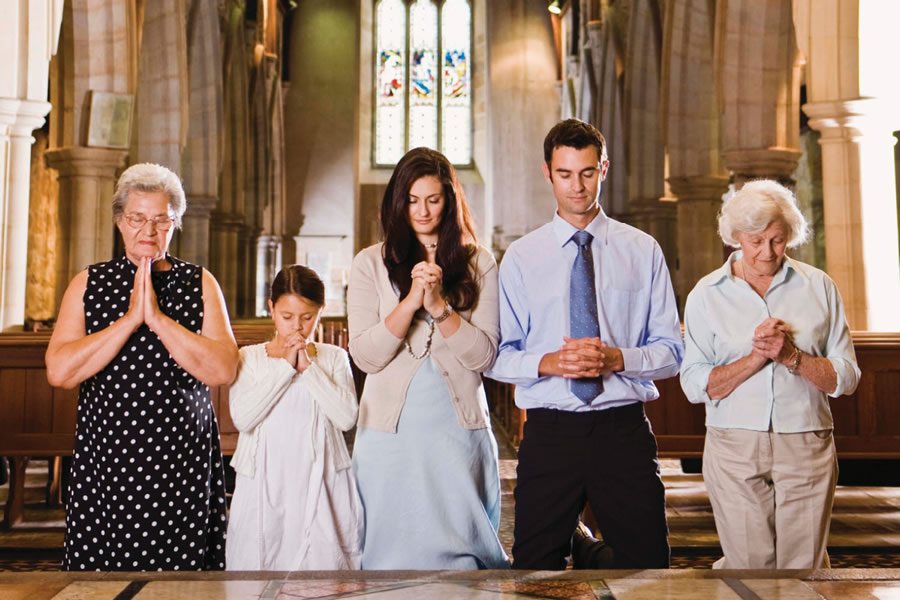
The Proper Garment
10-15-2023Weekly ReflectionFr. Chris NunesDear Fellow Disciples, peace.
Today's parable calls attention to one possibility in Christian discipleship: discipleship does not depend on worldly status. The fake discipleship shows the externalities, and appearances but is shallow in commitment to conversion and holiness. The rash way in which the improperly dressed individual was treated is a warning. Whoever welcomes and accepts the Kingdom of God and its call to conversion and holiness, in faithful discipleship, must live a life that reflects it. What about the disciple who is selfish, merciless, biased, racist, unjust, or proud? His life betrays what he says he believes.
In a more practical way, this parable also challenges us, in our mindset regarding how to dress for church. More and more we see Church becoming another casual place where it doesn't matter how we dress. Someone once told me, "After all, God sees our hearts, not our clothes".
Our society has become so casual, and the values of life so confused, that a lot of men and women, use that excuse to dress immodestly and inappropriately for the different places they visit, including Church. The way we dress sends a message, positive or negative to others, about who we are. It is true that God sees our hearts, but our brothers and sisters see us. Thus the way we appear, dress, behave, speak, and pray can be a great tool for evangelization.
We also need to keep helping the Church, as God's people, to restore the sense of woe, wonder, respect, and reverence about God's house, which is slowly being lost. Let us ask the Holy Spirit this week to inspire us in ways to be "walking gospels".
La Prenda Adecuada
Queridos discípulos, paz.
La parábola de hoy llama la atención sobre una posibilidad en el discipulado cristiano: el discipulado no depende del estatus mundano. El falso discipulado muestra externalidades y apariencias, pero es superficial en su compromiso con la conversión y la santidad.
La forma imprudente en que se trató al individuo mal vestido es una advertencia. Quien acoge y acepta el Reino de Dios y su llamada a la conversión y a la santidad, en un discipulado fiel, debe vivir una vida que lo refleje. ¿Qué pasa con el discípulo que es egoísta, despiadado, parcial, racista, injusto u orgulloso? Su vida traiciona lo que dice creer.
De una manera más práctica, esta parábola también nos desafía en nuestra forma de pensar sobre cómo vestirnos para ir a la iglesia. Cada vez más vemos que la Iglesia se convierte en otro lugar informal donde no importa cómo nos vistamos. Alguien me dijo una vez: "Después de todo, Dios ve nuestros corazones, no nuestra ropa".
Nuestra sociedad se ha vuelto tan informal y los valores de la vida tan confusos, que muchos hombres y mujeres usan esa excusa para vestirse de manera inmodesta e inapropiada para los diferentes lugares que visitan, incluida la Iglesia. La forma en que nos vestimos envía un mensaje, positivo o negativo, a los demás sobre quiénes somos. Es cierto que Dios ve nuestros corazones, pero nuestros hermanos y hermanas nos ven a nosotros. Así, nuestra forma de aparecer, vestirnos, comportarnos, hablar y orar puede ser una gran herramienta para la evangelización.
También debemos seguir ayudando a la Iglesia, como pueblo de Dios, a restaurar el sentimiento de dolor, asombro, respeto y reverencia por la casa de Dios, que poco a poco se está perdiendo. Pidamos al Espíritu Santo esta semana que nos inspire de maneras para ser "evangelios andantes".
BACK TO LIST